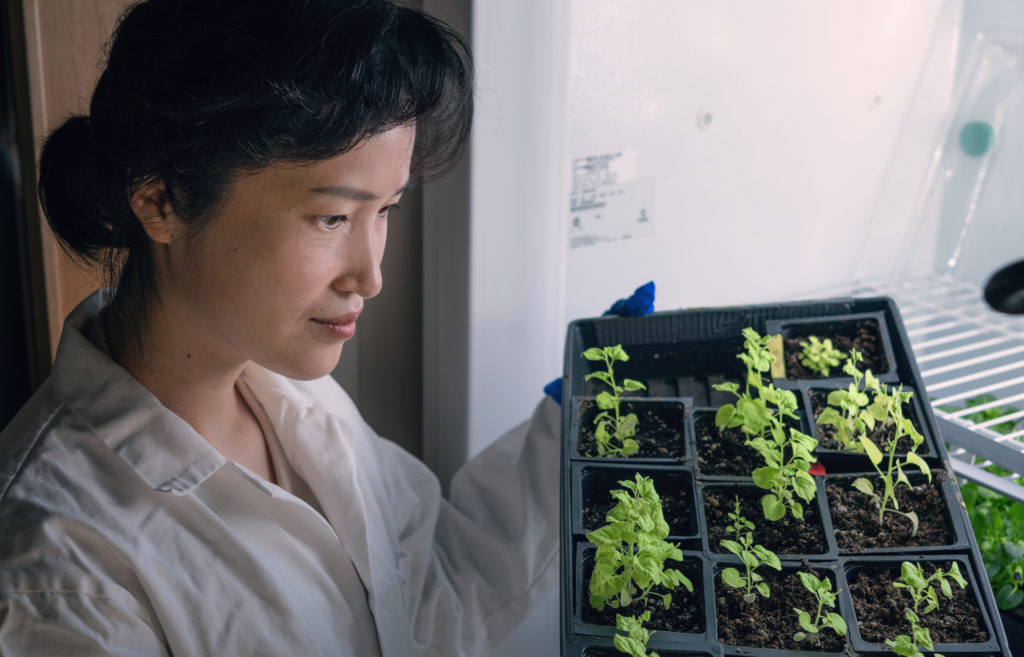
Some superheroes are too small to be seen by the naked eye. Microscopic bacteria-eating viruses, known as bacteriophages or phages, are coming into favour as a way to combat food-borne pathogens. Known as predator of bacteria, phages are less than half a micron in size, and 5-10 times smaller than bacteria itself. Once applied onto food, such as romaine lettuce that is harbouring harmful bacteria, the phages quickly proliferate, attack the host bacteria and destroy it through a process called lysis.
Associate Professor Dr. Siyun Wang and her research team are studying new applications of bacteriophages in UBC’s Food Safety Laboratory. “This is like a drug discovery process. We collect phages, bring them into the lab and run trials on animals, crops and food products to test how effective they are,” says Dr. Wang. “We have a treasure of phages, with a library of about 150 of them now. However, not many of them will do the job as expected; that’s why you need a large library. To select for the best phage candidates, we perform lab-based screening assays and whole genome sequencing to extensively understand the behavior and genetic traits of each phage, as well as how these phages work together as a ‘cocktail’ that may kill food-borne pathogens in an effective manner.”
The library of phages at Dr. Wang’s lab is sourced from water and soil from B.C.’s Lower Mainland and Fraser Valley regions. Common sources of food-borne bacteria are groundwater and soil that came into contact with the feces of an infected animal or improperly composted manure.
Please read the Faculty of Land and Food Systems story to learn more about how research at UBC is responding and adapting to the pressing challenges of our times.
Through Strategy 10: Research Culture, UBC is working to develop the principles and practices that define a collaborative and inclusive research culture and that support mentorship, scholarship, discovery and creativity.